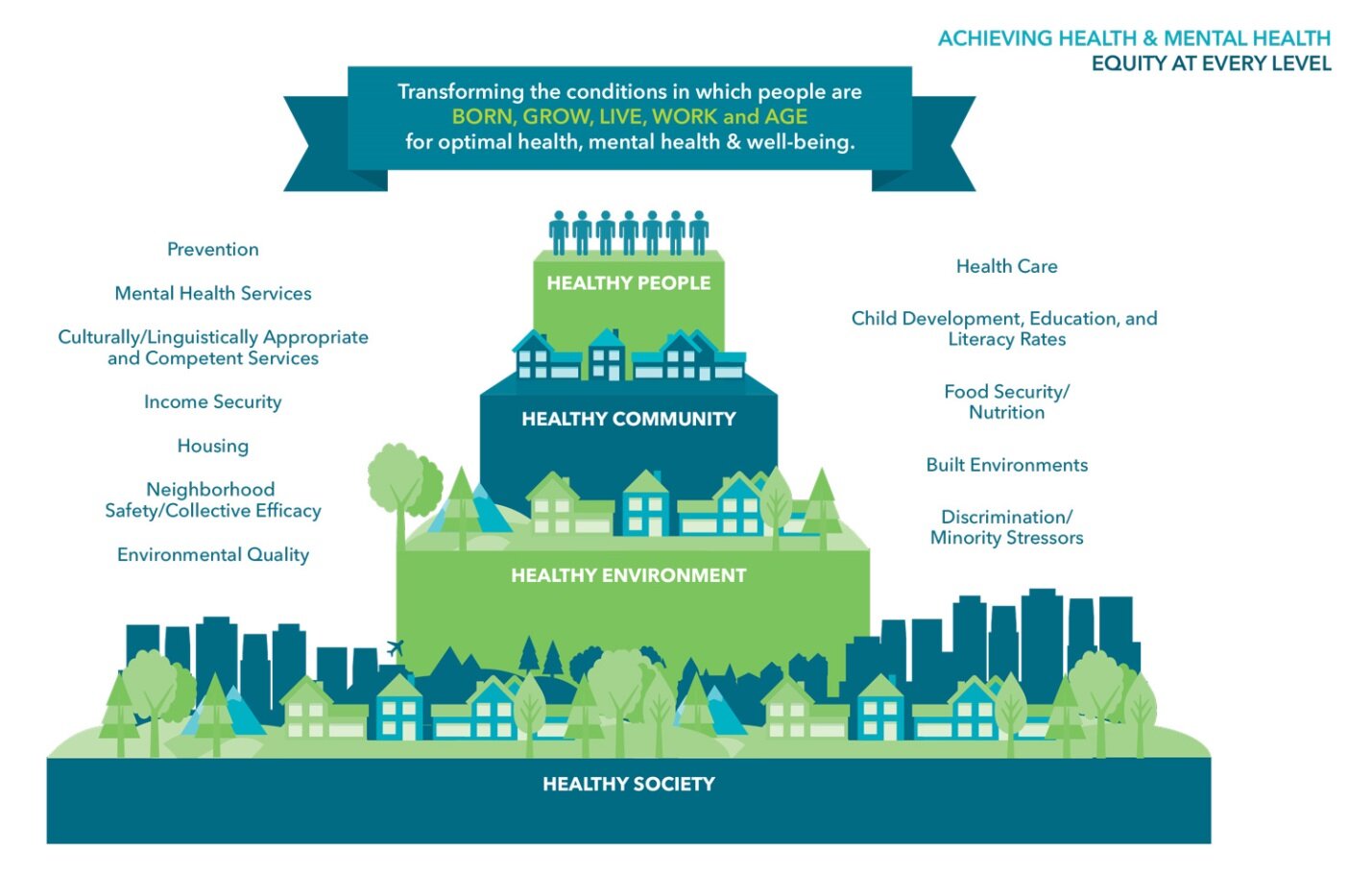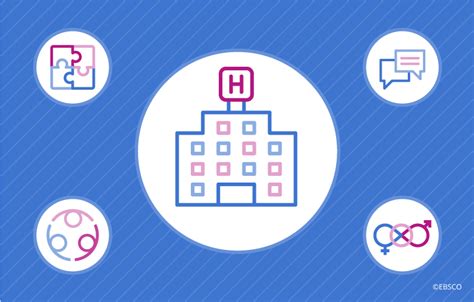Health Equity Careers

In today's world, the concept of health equity has gained significant prominence, sparking a much-needed conversation about the disparities in healthcare access and outcomes. This growing awareness has prompted a surge of interest in careers dedicated to addressing these inequalities, offering not just professional opportunities but also a chance to make a profound impact on society. At the forefront of this movement are a diverse range of roles, each playing a critical part in the pursuit of equitable healthcare for all.
The Importance of Health Equity

Health equity refers to the absence of disparities in healthcare access, quality, and outcomes based on factors like race, ethnicity, gender, socioeconomic status, or geographic location. It ensures that every individual, regardless of their background, has the opportunity to attain their highest level of health and well-being.
Achieving health equity is not just a moral imperative; it also brings about significant economic and social benefits. Studies have shown that reducing health disparities can lead to substantial savings in healthcare costs, boost workforce productivity, and enhance the overall quality of life for millions of individuals.
Career Paths in Health Equity

The field of health equity offers a wide array of career paths, each with its unique set of challenges and rewards. Here, we delve into some of the key roles and their impact on driving health equity forward.
Healthcare Policy Analysts
Healthcare policy analysts play a pivotal role in shaping the future of healthcare systems. They conduct in-depth research and analysis to identify trends, gaps, and disparities in healthcare access and outcomes. Armed with this data, they develop policies and strategies aimed at reducing health inequities and improving overall healthcare delivery.
For instance, a policy analyst might study the impact of a new healthcare initiative on a specific demographic group, such as low-income communities. By analyzing the data, they can identify any disparities in access or outcomes and provide recommendations to policymakers to ensure equitable healthcare for all.
| Key Responsibilities | Skills Required |
|---|---|
| Conducting research and data analysis | Strong analytical skills, proficiency in data analysis tools |
| Developing healthcare policies and strategies | Critical thinking, policy writing abilities |
| Engaging with stakeholders and policymakers | Excellent communication and interpersonal skills |

Community Health Workers
Community health workers (CHWs) are often the unsung heroes of health equity. These professionals work directly with communities, bridging the gap between healthcare services and those in need. CHWs are trusted members of their communities, speaking the same language—both literally and figuratively—as those they serve.
Their role involves connecting individuals with appropriate healthcare services, providing health education and promotion, and advocating for the health needs of their community. CHWs play a critical role in identifying and addressing barriers to healthcare access, such as cultural or language barriers, transportation issues, or lack of awareness about available services.
| Key Responsibilities | Skills Required |
|---|---|
| Assessing community health needs | Strong observational and analytical skills |
| Providing health education and promotion | Excellent communication skills, cultural sensitivity |
| Connecting individuals with healthcare services | Ability to build trust, empathy, and patience |
Healthcare Administrators and Managers
Healthcare administrators and managers are responsible for the efficient and effective operation of healthcare facilities, ensuring that quality care is delivered to all patients. In the context of health equity, they play a crucial role in implementing strategies and policies aimed at reducing disparities.
For example, a healthcare administrator might oversee the implementation of a new program aimed at improving maternal health outcomes for minority women. They would ensure the program is properly funded, staffed, and promoted to the target community, and monitor its effectiveness in reducing health disparities.
| Key Responsibilities | Skills Required |
|---|---|
| Developing and implementing healthcare policies | Strategic thinking, leadership skills |
| Managing healthcare facilities and staff | Excellent organizational and managerial skills |
| Ensuring quality patient care and patient satisfaction | Empathy, strong interpersonal skills |
Public Health Advocates and Educators
Public health advocates and educators are instrumental in raising awareness about health equity issues and promoting healthy behaviors within communities. They educate the public about health risks, preventive measures, and available healthcare services, helping to empower individuals to take control of their health.
Advocates might organize community events, such as health fairs or awareness campaigns, to educate the public about specific health concerns, like the importance of regular cancer screenings or managing chronic diseases. They also collaborate with local leaders and organizations to ensure that health messages are relevant and accessible to the community.
| Key Responsibilities | Skills Required |
|---|---|
| Developing and delivering health education programs | Excellent communication skills, creativity |
| Advocating for health equity and social justice | Strong interpersonal skills, empathy |
| Collaborating with community partners | Ability to build partnerships, cultural sensitivity |
Healthcare Researchers and Epidemiologists
Healthcare researchers and epidemiologists are critical in understanding the root causes of health disparities and developing interventions to address them. They study disease patterns, identify risk factors, and evaluate the effectiveness of healthcare interventions, contributing to the body of knowledge that informs policy and practice.
For instance, an epidemiologist might investigate the higher prevalence of a certain disease among a particular racial group. By analyzing data and conducting studies, they can identify the social, economic, and environmental factors contributing to this disparity and propose targeted interventions to reduce it.
| Key Responsibilities | Skills Required |
|---|---|
| Conducting research and epidemiological studies | Strong analytical skills, proficiency in research methods |
| Identifying and analyzing health disparities | Critical thinking, attention to detail |
| Developing and evaluating healthcare interventions | Project management skills, creativity |
The Impact of Health Equity Careers
The impact of these careers on health equity is profound. By working to reduce disparities in healthcare access and outcomes, professionals in these fields contribute to the overall well-being of communities and society as a whole. Their efforts lead to improved health outcomes, reduced healthcare costs, and a more equitable and just society.
Moreover, these careers offer a sense of purpose and fulfillment, as individuals can see the direct impact of their work on the lives of others. It is a rewarding journey, both personally and professionally, knowing that one is making a difference in the world.
Conclusion
Health equity careers are a testament to the power of healthcare professionals to make a difference. Through their dedication and expertise, they are driving forward the vision of a healthcare system that serves all individuals equally, regardless of their background. It is a noble pursuit, and one that is crucial for the health and well-being of our global community.
What is the average salary range for healthcare policy analysts?
+Healthcare policy analysts can expect a competitive salary range. Entry-level positions typically start around 40,000 to 50,000 per year, while experienced analysts can earn upwards of 80,000 to 120,000 annually, depending on their expertise, location, and the organization they work for.
How can I become a community health worker?
+Becoming a community health worker typically requires a high school diploma or equivalent, although some positions may prefer or require a college degree. Most importantly, CHWs should have strong interpersonal skills, cultural sensitivity, and a genuine desire to help their community. Training programs are often available through community colleges or local health departments.
What are the key challenges faced by healthcare administrators in promoting health equity?
+Healthcare administrators face several challenges, including limited resources, resistance to change, and the complex nature of healthcare systems. They must navigate political and organizational barriers, address cultural and language differences, and ensure that health equity initiatives are well-integrated into the daily operations of healthcare facilities.



